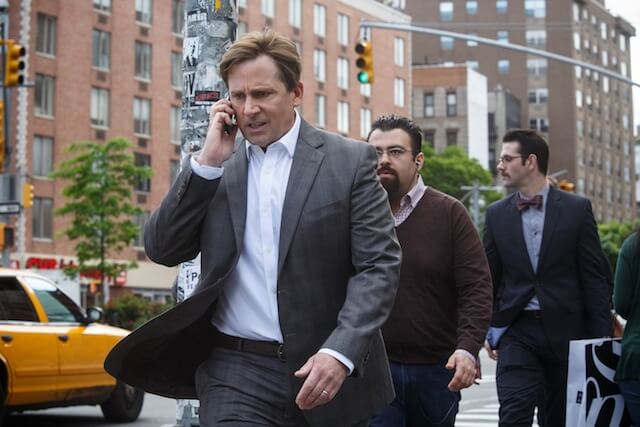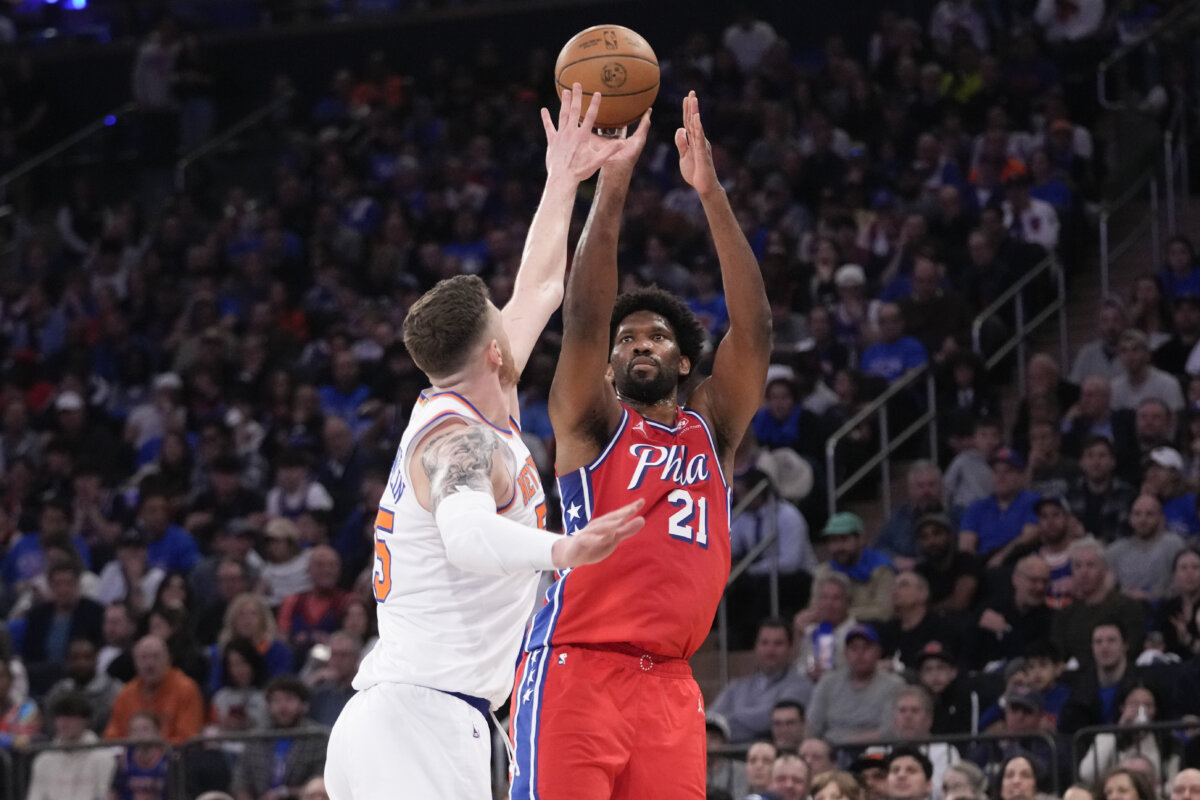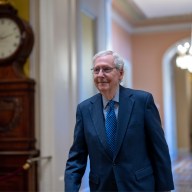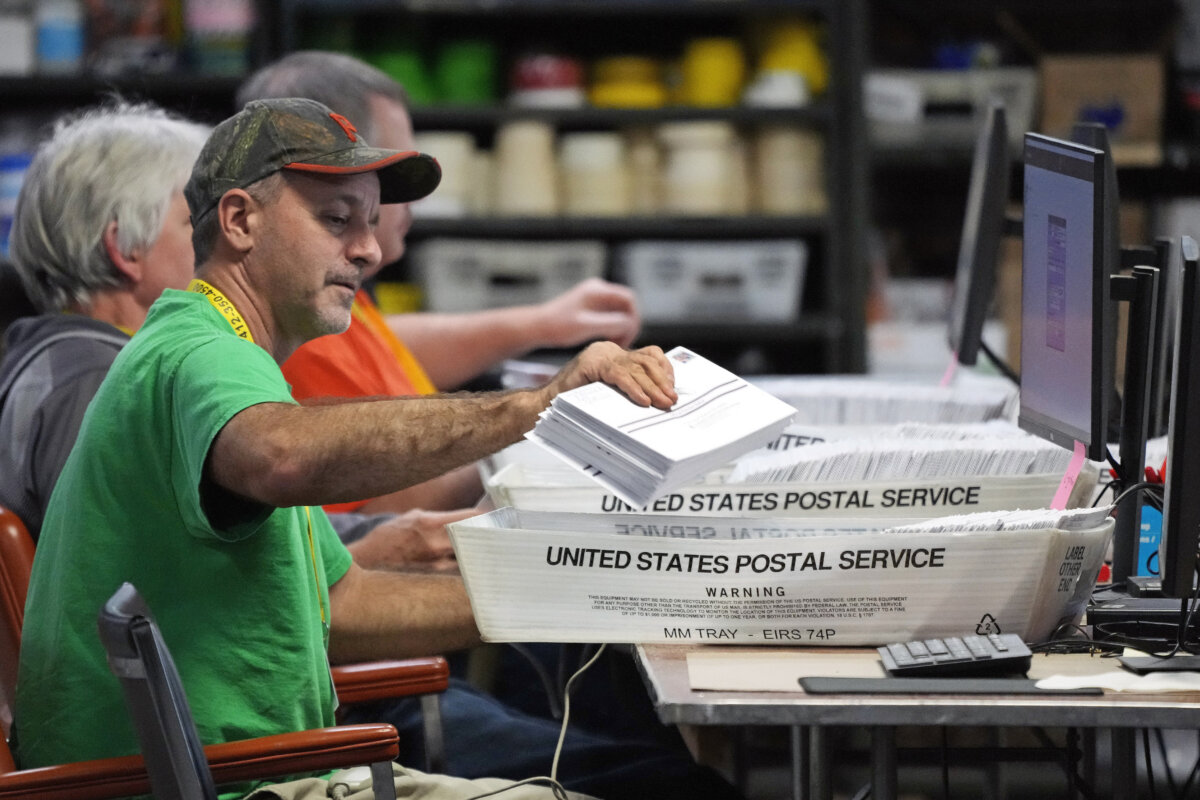‘The Big Short’ To the plebe who’s bad at money, the hedge fund chatter that teems from every pore of “The Big Short” is “Primer”-level impenetrable. Based on Michael Lewis’ bone-chilling bestseller, Adam McKay’s seriocomic nightmare tries to explain to the layman the greedy, moronic forces that caused the 2008 economic catastrophe. It even stops a few times so that celebrities can break it down for us like we’re stupid: Margot Robbie talks subprime loans in a bathtub, and Anthony Bourdain and Selena Gomez define CDOs and synthetic CDOs, respectively. RELATED: Interview: Adam McKay talks “We the Economy” and talking economics via “My Little Pony” parodies But most of the time it lets smart people talk (or more often shout) concentrated gobbledygook, motormouthing their way to the apocalypse. At least some of them are the good(ish) guys. Our heroes are insiders who realize, shortly before the collapse, that the housing market is ready to implode. Some of them have famous faces, sometimes with bad wigs. Christian Bale is hedge fund dude Michael Burry and Steve Carell money manager Mark Baum (based on Steve Eisman), while a retired, health nut trader is played by no less than producer Brad Pitt, shaggy and looking very Anders Holm. If you’re often lost, then “The Big Short” is doing its job. As Ryan Gosling’s douchey yet ethical trader (and our part-time guide) Jared Vennett explains, lenders use meaningless jargon and acronyms to confuse their prey, driving them to thoughtlessly sign up for loans that will make their predators disgustingly rich. If “The Big Short” doesn’t always make sense of the particulars, it does hip one to the bigger picture, which is that a swarm of sociopaths created a rickety system that only makes sense to them. At one point we meet two young brokers who giggle as they talk about peddling mortgages to poor people and immigrants who could never make their payments. “They’re not confessing,” observes one character. “They’re bragging.” McKay — the mastermind of Will Ferrell’s loopiest, adlib-iest comedies, like “Anchorman” and “Step Brothers” — presents this both seriously and as a rollicking black comedy that has no interesting in hiding its rage. He’s not selling himself out as a Serious Filmmaker, but he does sometimes go stock. He even sometimes tries to make the film’s not-quite-white knights likable.Carell’s rage-filled Baum occasionally stops to brood over his dead brother, while Bale’s Asperger’s-y Burry lost an eye as a kid. (A much more humanizing touch is that he likes to roam his offices in an oversized tee and shorts while chillaxing to loud metal.) But more often they’re mere fast-talking mouthpieces, filmed with herky-jerk handheld and diced up via Cuisinart editing. McKay employed Paul Greengrass’ cinematographer, Barry Ackroyd, to make it all look “Bourne,” but a bigger inspiration may have been the British comedy shows “The Thick of It” and “Veep,”which are filmed the same way and do to government what this tries to do to money. RELATED: Review: “In the Heart of the Sea” is too much of a Ron Howard movie McKay could have borrowed a few more things from those shows, including funnier and sharper dialogue, more vivid characters and a deeper look at the bureaucratic institutions that by their nature turn its inhabitants into venal monsters, oblivious to the damage they selfishly wreak. The villains who nearly blew up the world (and then, unpunished, may do it again) are shown as simply a ton of bad apple bros. Perhaps more importantly, only Gosling’s Vennett has a high batting average with one-liners, sneaking in nonsequiturs about playing blackjack with Harry Dean Stanton and a pretty solid reference to “the bad guy from ‘Dune.’” “The Big Short” falls short on greatness, but it remains righteously furious and playful, even if it borrows one of its best tricks, fourth wall asides, from “24 Hour Party People.” (Sometimes Vennett informs us some tall tale occurrence really did happen, or points out that one unlikely event is actually just dramatic license.) And it doesn’t find a comedic filmmaker turning saccharine as he goes serious. Still, this same material done in the gonzo manner of McKay’s “Talladega Nights” wouldn’t have trivialized a genuinely worrisome subject. In fact, it might have made it even more devastating.
Director: Adam McKay
Stars: Steve Carell, Ryan Gosling
Rating: R
3 (out of 5) Globes
‘The Big Short’ could be even more scathing and funny about terrible greed

Paramount Pictures
Follow Matt Prigge on Twitter @mattprigge


















